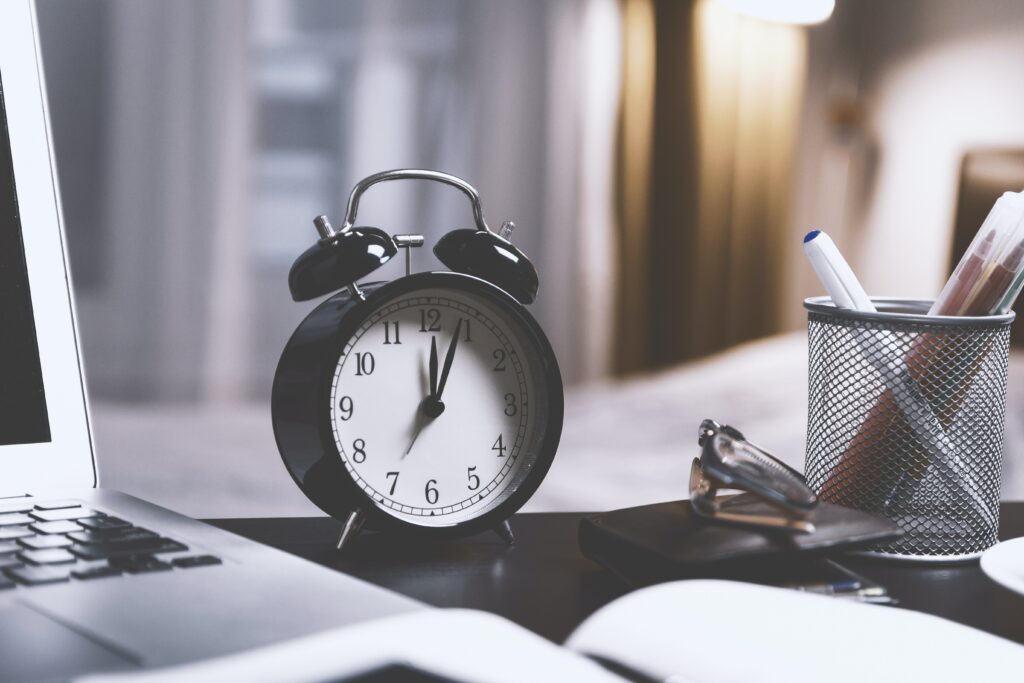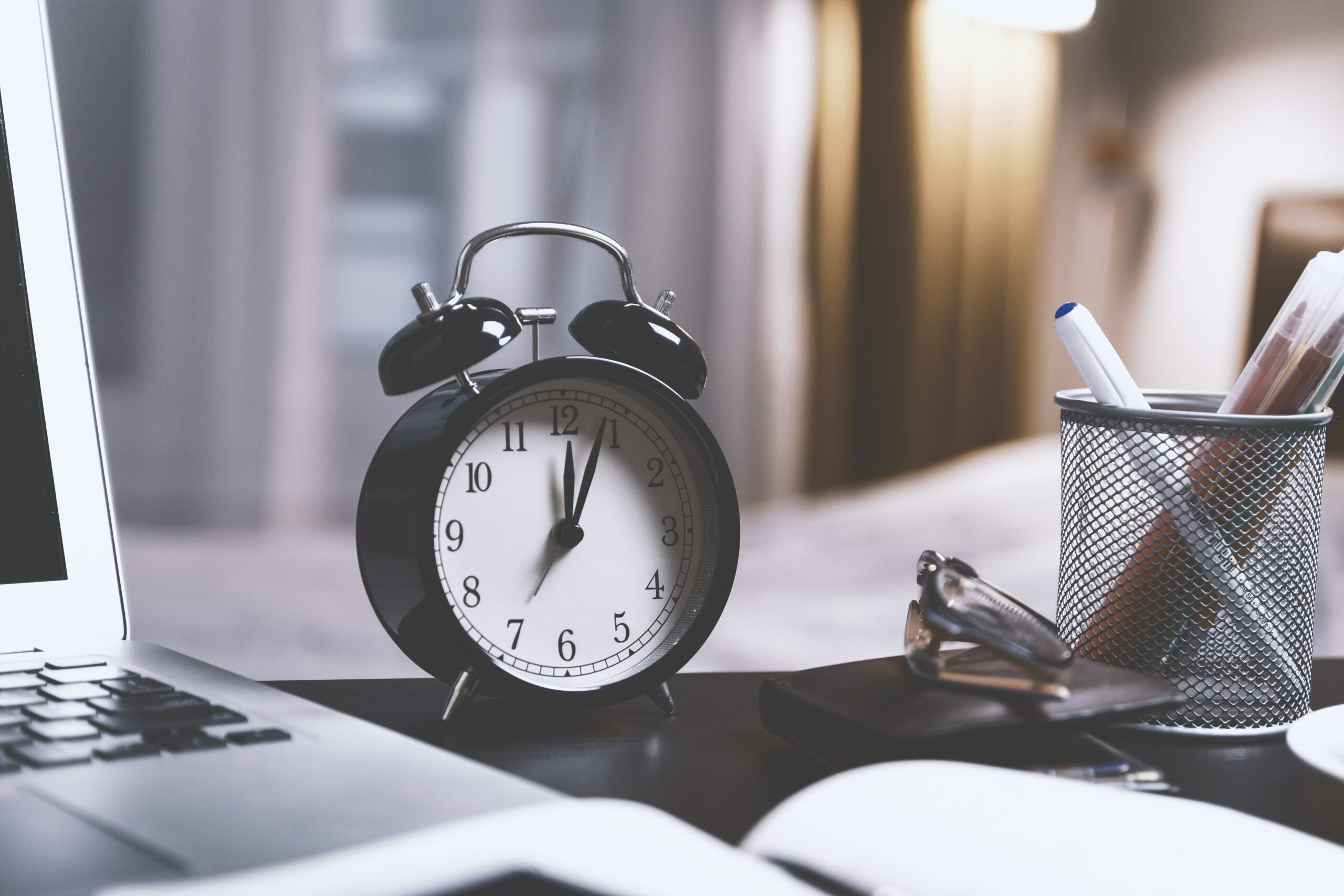3 time management tips that actually work
Time management can be difficult. What is urgent in your life and what is important to your life are often very different things.
This is especially true for your health, where the important things almost never seem urgent, even though your life is ultimately at stake.
No, going to the gym today is not urgent, but it is important for your long-term health.
No, you won’t die from stress today, but if you don’t get a handle on it soon, you might.
No, eating real, unprocessed foods is not vital right now, but it will reduce your risk for cancer and disease.
Is there anything we can do? If we all have 24 hours in a day, how can we use them more effectively?
And most importantly, how can we manage our time so that we live healthier, happier lives, do the things we know are important, and still get the urgent tasks done?

I struggle with this answer as much as you do, but in my experience, there are three time management tips that work in real life and will help you improve your health and productivity.
- Eliminate half-work at all costs.
In our age of constant distraction, it’s stupidly easy to divide our attention between what we should be doing and what society bombards us with. We usually have to weigh messages, emails, and to-do lists while trying to get things done at the same time. It is rare that we are fully focused on the task at hand.
I call this division of time and energy “half-work.”
Here are some examples of half-work….
You start to write a report, but occasionally pause to look at your phone for no reason or to open Facebook or Twitter.
You try out a new training program. Two days later, you read about another “new” fitness program and try a little of it. You make little progress on either program, so you look for something better.
Your mind wanders to your email inbox while you’re on the phone with someone.
Regardless of where and how you fall into the half-work trap, the result is always the same: You’re never fully engaged in the task at hand, you rarely devote yourself to a task for any length of time, and it takes you twice as long to accomplish half as much.
Half the work is why you get more done on the last day before vacation (when you’re really focused) than you do in the two weeks before (when you’re constantly distracted).
Like most people, I struggle with this all the time, and I’ve found that I cope best when I take a lot of time to focus on one project and cross off everything else.
I pick one exercise and focus only on that throughout the workout. (E.g., “Today there are only squats, everything else is extra.”)
I take a few hours (or even an entire workday) to immerse myself in an important project. I leave my phone in another room and turn off my email, Facebook and Twitter.
This complete elimination of distractions is the only way I know to work deeply and with focus, and to avoid fragmented sessions where you only do half the work.
How much more could you accomplish if you did the work you need to get done the way you need to get it done, and if you eliminated the half work, half rambling that we fill most of our days with?
- Get the most important things done first.
Clutter and chaos increase throughout the day. At the same time, the decisions and choices you make throughout the day drain your willpower. You are less likely to make a good decision at the end of the day than at the beginning of the day.
I have found that this trend holds true for my training as well. As the workout progresses, the less willpower I have to finish sets, complete reps, and perform difficult exercises.
For all these reasons, I do my best to make sure that if I have something important to do, I do it first.
If I have an important article to write, I grab a glass of water and start typing as soon as I wake up. If I have to do a difficult exercise, I do it at the beginning of every training session.
If you do the most important thing first, there will never be a day when you don’t get something important done. If you follow this simple strategy, you will usually have a productive day even if everything doesn’t go according to plan. If you actually get the most important things done first every day, that’s the only productivity tip you’ll ever need.
- reduce the scope, but keep to the schedule.
I’ve written before about the importance of sticking to a schedule rather than a deadline. There may be occasions when deadlines make sense, but I’m convinced that sticking to a schedule is much more effective when it comes to getting important work done over the long term.
However, when it comes to day-to-day work, following a schedule is easier said than done. Ask anyone who has resolved to work out every Monday, Wednesday, and Friday, and they’ll be able to tell you how hard it is to actually stick to their schedule every time.
To counteract the unforeseen distractions and overcome the tendency to get off track, I’ve made a small change in the way I approach my schedule. My goal is to put the schedule first, not the scope, which is the opposite of how we normally approach our goals.
For example, let’s say you woke up today with a resolution to run three miles this afternoon. As the day went on, your schedule got busier and busier and time started to run away from you. Now you only have 20 minutes left to exercise.
At this point, you have two choices.
The first is to say, “I don’t have enough time to work out today,” and spend what little time you have left doing something else. That’s usually what I would have done in the past.
The second option is to reduce the volume but stick to the schedule. Instead of running 3 miles, you run 1 mile or do five sprints or 30 jumping jacks. But you stick to the schedule and complete a workout no matter what. I’ve had far more long-term success with this approach than the first.
Doing five sprints a day doesn’t have much of an impact, especially if you set out to run three miles. But the cumulative effect of always sticking to the schedule is huge. No matter what the circumstances and no matter how small the workout, you know you’ll get today’s task done. This is how small goals become lifelong habits.
Get something done today, even if the scope is smaller than you expected.
Time management tips that actually work
There are thousands of time management apps and productivity gadgets out there. You’ll find more calendars, reminders, and to-do lists than you could possibly need. But in my experience, the most effective and practical time management tips are simple.
When it comes to living a healthy and productive life, I find it best to focus on three time management tips….
Eliminate half-work and focus fully.
Get the most important things done first.
Stick to your schedule and make it a habit, no matter how small the accomplishment.
How have you managed your time better and accomplished more at work, home or the gym?
You can also manage your work time and space with using a relevant digital HR platform for your business. Visit icehrm.com for more details.








